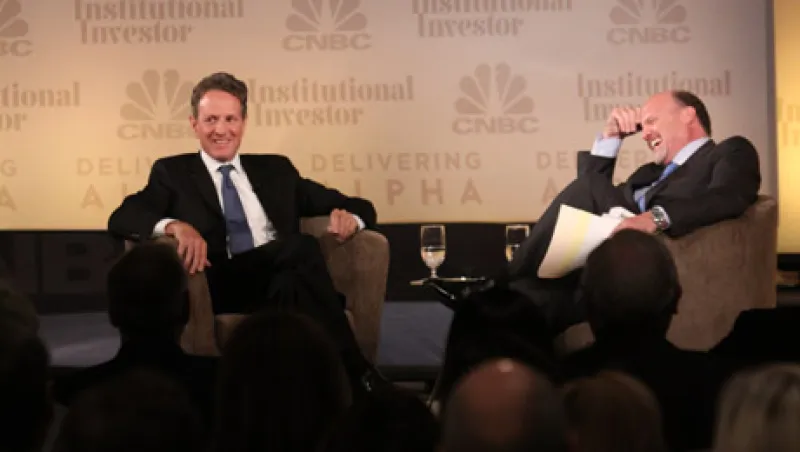U.S. Treasury Secretary Timothy Geithner promised some tough love for his European Union counterparts Wednesday, saying EU leaders needed to get ahead of the markets to save the euro.
Speaking at Institutional Investor and CNBC’s Delivering Alpha conference just 24 hours before he is due to head to Poland to participate for the first time in a meeting of euro zone Finance ministers, Geithner said he was confident in EU leaders’ political commitment to the euro and capacity to support its members but said they needed to recognize they have been behind the curve so far. It will take “more force” in terms of funding for peripheral countries and affordable interest rates for Italy and Spain to get Europe out of the crisis, he said in an interview with CNBC’s Jim Cramer.
Geithner dismissed the suggestion that Europe could be approaching a Lehman moment that would see the failure of a country or bank. “There is no chance that the major countries of Europe will let their institutions be at risk,” he said. But, he added, “They’ve got to do more to make that credible to the world.”
That was evident at the conference in New York, where BlackRock CEO Lawrence Fink decried Europe’s “incrementalism” in addressing the crisis to date. “The amount of money that is short euro sovereigns or financial institutions is enormous,” Fink said.





